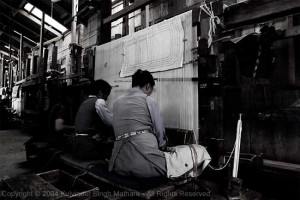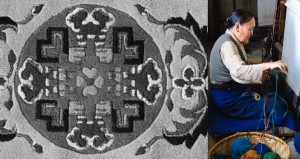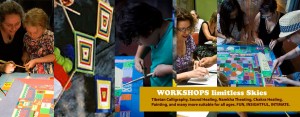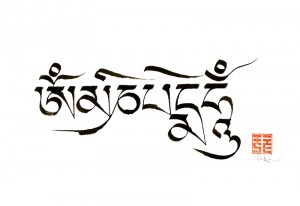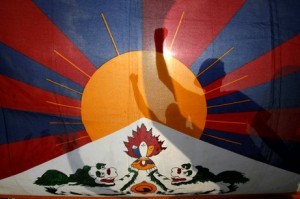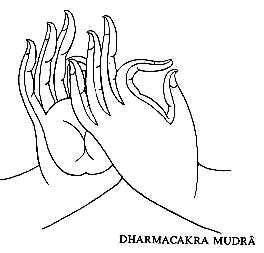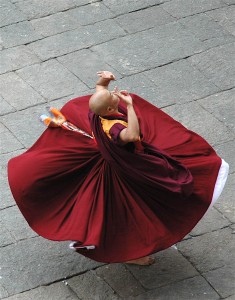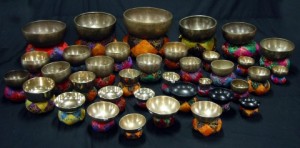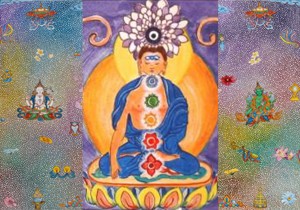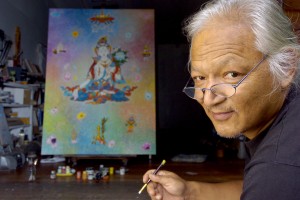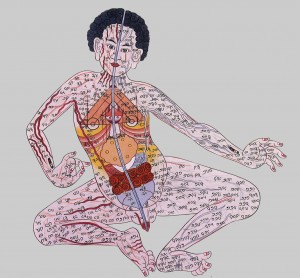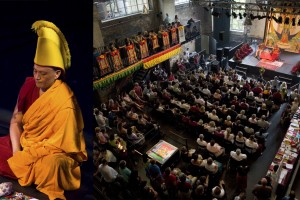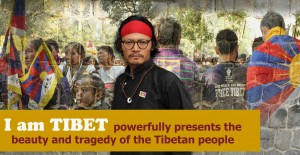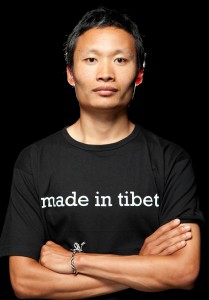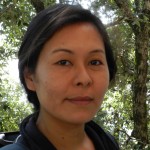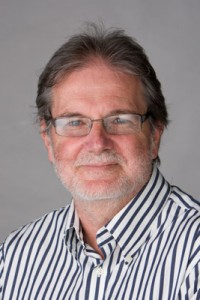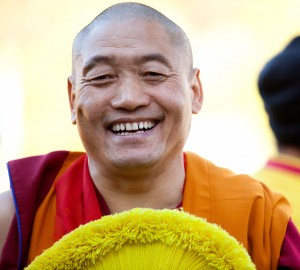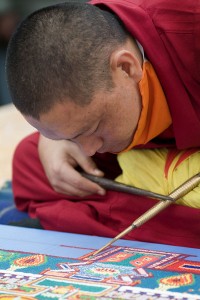
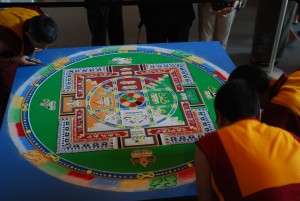 Sand Mandala The Tashi Lhunpo Monks of Tibet share traditional sand painting techniques and create a magnificent sand mandala over the five days of the Festival. The completed mandala will be dismantled and swept away in a final dissolution ceremony and the sand carried in ritual procession to the nearest moving water. There it will be symbolically scattered, thus dispersing the blessings and providing a powerful reminder of life’s impermanence. Formed of a traditional prescribed iconography that includes geometric shapes and a multitude of ancient spiritual symbols, the sand-painted mandala is used as a tool for re-consecrating the earth and its inhabitants.
Sand Mandala The Tashi Lhunpo Monks of Tibet share traditional sand painting techniques and create a magnificent sand mandala over the five days of the Festival. The completed mandala will be dismantled and swept away in a final dissolution ceremony and the sand carried in ritual procession to the nearest moving water. There it will be symbolically scattered, thus dispersing the blessings and providing a powerful reminder of life’s impermanence. Formed of a traditional prescribed iconography that includes geometric shapes and a multitude of ancient spiritual symbols, the sand-painted mandala is used as a tool for re-consecrating the earth and its inhabitants.
Sand mandala making is a remarkably fine, intricate process, requiring patience, devotion, skill and creativity. For the experienced and proficient mandala maker, millions of grains of sand are painstakingly laid into place on a flat platform over a period of days or weeks.
The Sand Mandala is built from coloured sand, ground from rock from the Himalayas, and then poured precisely onto the mandala design using a ‘chak-pu’, a cone-shaped, fine-tipped metal funnel. To adjust the sand once it is on the blueprint, a metal scraper called a ‘gyud-ti’ (tantric knife) is used.
The mandala is constructed from the center outwards. Once the mandala is completed, it is then dismantled, first by the removal of each of the deities represented in the mandala and then with a ‘dorje’, the head lama cuts through the main lines, thus cutting the energy of the mandala. The remaining sand is then swept up into the center of the mandala and placed in an urn.
In a ritual procession, the monks then carry the sand to the nearest moving water, where the sand is symbolically scattered to demonstrate life’s impermanence.
The mandala is, in essence, a visualization tool, a symbol of a perfect world in which we are all perfect beings practicing the pure loving kindness and compassion that is innate in all living beings. Visualizing oneself in the center of this perfect world of the mandala creates the conditions for us to behave towards others with kindness and compassion, which in turn, causes them to develop a similar outlook and leads to the creation of such a perfect world.
This tradition has been preserved over the past 2500 years in an unbroken transmission from master to disciple.
Turbine Time 9am to 5pm Every day Dissolution Ceremony Time 11am Sun 5 Feb FREE
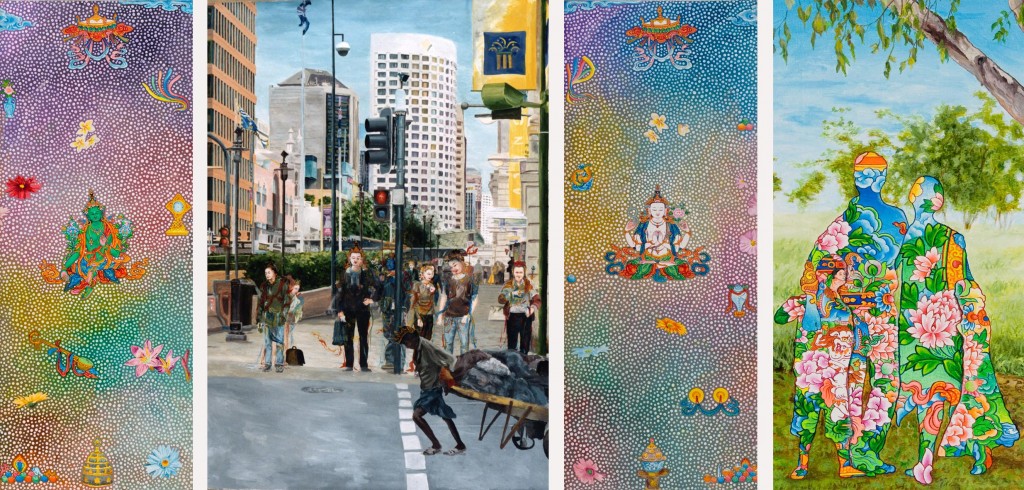 Tibetan paintings by Karma Phuntsok– The Festival will feature an exhibition of cutting edge contemporary Tibetan art by master painter Karma Phuntsok. Though formally trained, Karma applies a range of innovative techniques and materials in his work, creating unique and dynamic expressions of contemporary Buddhist Art. Karma’s art is featured in collections around the world including the Queensland Art Gallery and Art Gallery of New South Wales.
Tibetan paintings by Karma Phuntsok– The Festival will feature an exhibition of cutting edge contemporary Tibetan art by master painter Karma Phuntsok. Though formally trained, Karma applies a range of innovative techniques and materials in his work, creating unique and dynamic expressions of contemporary Buddhist Art. Karma’s art is featured in collections around the world including the Queensland Art Gallery and Art Gallery of New South Wales.